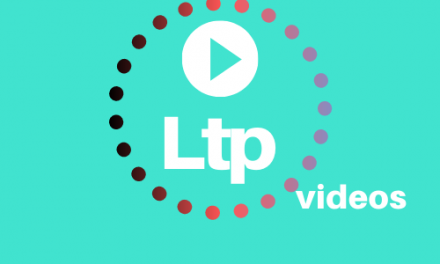LTP News Sharing:
“In light of recent research finding that ‘DEI may escalate workplace hostility and racial bias,’ [Paolo] Gaudiano’s claim that anti-DEI activists seek to foment anger and polarization appears to be pure projection,” writes Free Enterprise Project Executive Director Stefan Padfield in a response to Gaudiano’s Forbes piece.
“It is the DEI industrial complex that sows division in the name of inclusion,” Stefan writes at RealClearMarkets. “[T]he truth is that DEI (Diversity, Equity, and Inclusion) programs are the real problem, and anti-DEI activists are the ones speaking truth to power.”
Read Stefan’s commentary below.
In a recent Forbes article, Paolo Gaudiano asserted that my employer, the National Center for Public Policy Research (NCPPR), and other “anti-DEI activists,” purposely “aim to … foment anger and polarization among white people.” (You’ll note that the link is to an archived version of the Gaudiano piece, as Forbes took the piece down after I contacted them about publishing our reply. Having thus washed their hands of the piece – after countless people read it – Forbes declined to publish this reply.)

Stefan Padfield
In addition to this defamatory smear, Gaudiano also attempted to convince readers to join him in a reality-defying echo chamber when he claimed that: “Describing DEI as having a discriminatory agenda is absurd ….” However, the truth is that DEI (Diversity, Equity, and Inclusion) programs are the real problem, and anti-DEI activists are the ones speaking truth to power.
Let’s start with the claim that anti-DEI activists like NCPPR aim to “foment anger and polarization among white people.” Obviously, we know what we aim to do, and that is simply to warn institutions of the risks inherent in opening their doors to the divisive and value-destroying Trojan horse of DEI. We are very clear about that in all our related shareholder proposals, in which we provide the requisite supporting evidence (more on that below). In fact, I have personally been warning about that since 2020. In light of recent research finding that “DEI may escalate workplace hostility and racial bias,” Gaudiano’s claim that anti-DEI activists seek to foment anger and polarization appears to be pure projection. It is the DEI industrial complex that sows division in the name of inclusion.
On the assertion that it’s “absurd” to describe DEI as having a discriminatory agenda, Gaudiano has apparently memory-holed the inconvenient truth that one of DEI’s most esteemed gurus, Ibram X. Kendi, is renowned for having asserted that the “only remedy to past discrimination is present discrimination.”
To further test Gaudiano’s proposition that it’s “absurd” to describe DEI as having a discriminatory agenda, I asked Grok, the AI search engine available to users of X, whether it could find any support for the proposition that DEI has a discriminatory agenda. The resulting list of supporting sources was predictably long, and included (1) legal challenges and court decisions like the “jury verdict awarding nearly $4 million to a white male employee who alleged reverse discrimination based on DEI initiatives at his workplace,” (2) “evidence that DEI statements can act as ideological litmus tests for employment,” and (3) legislative action, including “81 anti-DEI bills … introduced in 28 states and in Congress” since 2023.
Add to that the evidence of DEI-related risks we cite in shareholder proposals like the one we recently filed at Costco, which prompted Gaudiano’s response. Therein we noted that:
Last year, the U.S. Supreme Court ruled in SFFA v. Harvard that discriminating on the basis of race in college admissions violates the equal protection clause of the 14th Amendment. Prior legal advice regarding the legality of corporate Diversity, Equity and Inclusion (DEI) programs has been called into question post-SFFA. As such, Attorneys General of 13 States warned Fortune 100 companies that SFFA implicated corporate DEI programs. Since SFFA, a number of DEI-related lawsuits have been filed. A corporation was successfully sued for a single case of discrimination against a white employee resulting in an award of more than $25 million, and the risk of being sued for such discrimination appears to be rising.
Other relevant legal cases include American Alliance for Equal Rights v. Fearless Fund (holding that the fund likely violated federal civil-rights law by excluding applicants other than black women) and City of St. Louis v. Muldrow (making it easier to bring reverse discrimination claims).
And then we get to the Robby Starbuck phenomenon, which by last count has caused at least 18 big-name companies to walk back or eliminate their DEI programs. There are two critical points about these reversals. First, all Starbuck is doing is exposing the actual DEI programs. As far as I know, no one has accused him of lying or fabricating evidence. It is the actual substance of the DEI programs, once exposed to sunlight, that is causing the backlash. Second, we are now getting a real accounting of the value-destruction of DEI, with John Deere having reportedly lost $10 billion in market cap after Starbuck started exposing them and before Deere did the right thing and started dismantling its DEI programs. Add to this the related DEI-adjacent losses at Bud Light, Target, and Disney, and continuing to push DEI starts to scream breach of duty.
All of which brings us to the question: Should DEI be saved? While the possibility of reform should not be completely dismissed, it must be kept in mind that it is precisely people like Gaudiano – people who dismiss the reality of DEI divisiveness as “absurd” while retreating behind the utterly worn-out trope of accusing anyone disagreeing with them of being a racist – that would likely be left administering a reformed DEI. We’re talking about people like Robin DiAngelo, who think progress is made by teaching that all white people are racist, or Ibram X. Kendi, who – as referenced above – promotes the neo-racist idea that the “only remedy to past discrimination is present discrimination,” or even the infamous “progressive” who explained the October 7th massacre by asking us, “What did y’all think decolonization meant?” These are the type of people we are supposed to trust with providing us a reformed DEI? I think not. And given that no one can guarantee these types won’t be able to infiltrate a reformed DEI just as they have infiltrated the current DEI, reform seems unlikely.
The good news is that we already have everything we need to protect civil rights. As Robby Starbuck said in his recent commentary on McDonald’s walking back its DEI programs:
Provide great service. Be kind. Do the right thing. Be fair. And if you’re a company executive, you … lay down the hammer when somebody breaks the law. Everybody’s all for that. But there’s no need for DEI teams at all…. It’s time that … we get rid of this infantile way of operating businesses.
Let’s unite around that and stop using DEI to divide people on the basis of race, sex, and ethnicity.
Author: Stefan Padfield







